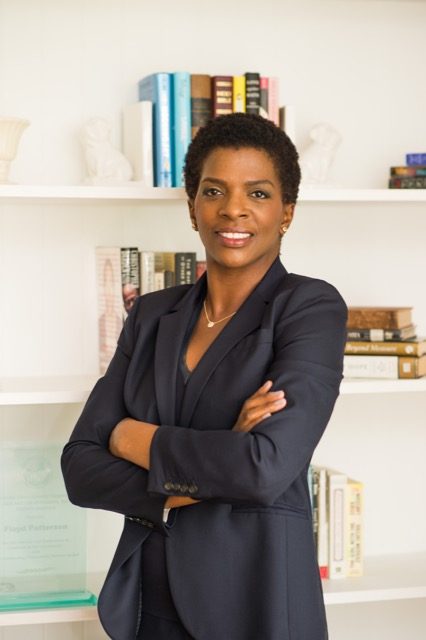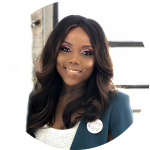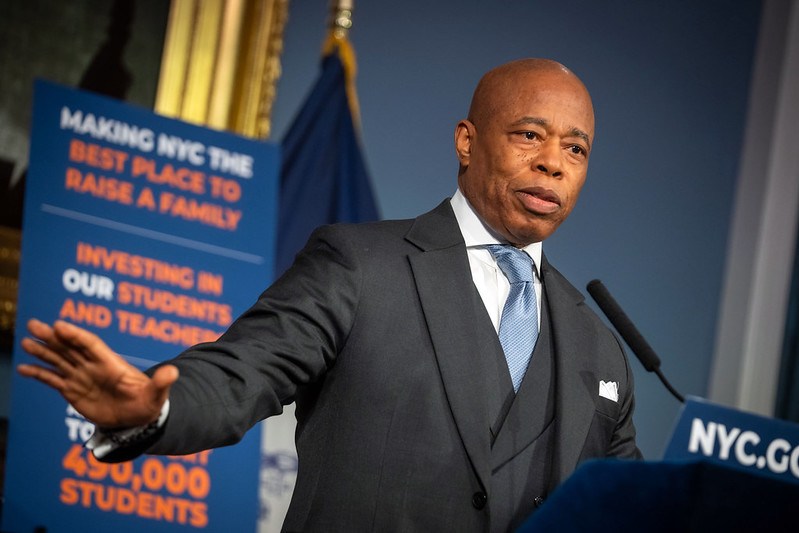October is National Domestic Violence Awareness Month. In honor of supporting and empowering vulnerable communities, Judge Dena Douglas and city officials, spoke with KCP about the courts and what it’s been like over the last few months.
According to NYPD stats, quarterly reports indicate there have been 47,965 radio runs involving domestic incidents across all the city’s precincts. From this January to June, Brooklyn’s 73rd Precinct, along with the Bronx and Manhattan precincts, ranked among the highest for domestic incident complaints involving New York City Housing Authority (NYCHA) residents.
While statistically speaking the number of these complaints did drop from last year, that didn’t necessarily mean incidents stopped during the COVID-19 lockdown, they just weren’t as accessible, reported The NY Times.

“I could tell you through my years as a prosecutor and as a judge, there was an area of big concern because while we were in the pandemic and while we were focusing on many areas of public health, there was a concern for domestic violence victims, child abuse victims, elder abuse victims, teen violence victims. It was hard to really get a poll of what was happening in that area,” said Douglas.
Born and raised in Crown Heights, Douglas still lives in Brooklyn with her children and works at The Supreme Court House downtown on 320 Jay Street. Douglas, a trial judge since 2007 and an active Supreme Court Justice, has been in the criminal space her whole career. She worked as a prosecutor and former Chief in the Domestic Violence Bureau before she joined the bench. “It’s very difficult work. I’m a mom of two and a woman. It’s an area I’m very passionate about,” said Douglas.
The courts didn’t close down because of the COVID-19 crisis, but pivoted to virtual proceedings, said Douglas. She was still assigned everything from minor to major cases, and if required, had in-person appearances in rooms set up with plexiglass partitions. Some of the cases she oversaw were domestic violence cases, or cases with domestic violence components or motivations. Understandably, because of the nature of her job, she could only comment on certain aspects of cases in the past, present, or potential future, and all related information.
Douglas said there are many factors that determine if one of these cases goes to trial, and statistically the number that do are low. General factors, like whether there is a child involved or an existing relationship, and if there is some degree of physical assault and/or stalking and harassment involved, are among the criteria for criminal law. “If there is a mental health component that the victim of the crime may suffer, it weighs into the case, prosecution and the presentation of the evidence. And also the mental health weighs into the defense of it,” said Douglas.
The New York State Office for the Prevention of Domestic Violence, said Executive Director Kelli Owens, is working to transform and modernize the way services are delivered to victims.
“In addition to a broad-sweeping effort to ensure a survivor-centered approach, OPDV has worked to address inequities in the court system. That includes supporting the passage of a bill that allows judges to consider acts of domestic violence in court settlements and another that eliminates the requirement for an order of protection for domestic violence victims seeking early lease termination,” said Owens.
Services, like a social worker to overview a case, are free to victims, said Douglas, and provide the help they need for them and their families. Douglas said when a victim is coming to court to testify in a domestic violence case, the social worker and an investigator usually escorts them.
“There can be cultural differences that can affect and have affected the reporting in certain communities,” said Douglas, about why someone wouldn’t report an incident.
Douglas said that as a woman she is very sensitive to the needs of victims and that domestic violence “has touched her life and family as well.” In that regard, she is not alone.

“As a past victim of domestic violence for many years, it takes a tremendous strain on one’s mental, emotional and physical health,” said Assemblymember Maritza Davila (D- Bushwick, Williamsburg). “Now with this COVID-19 pandemic and during the city-wide shutdown, children and families who are victimized, feel trapped and ultimately disconnected from community resources. Recovery to help deal with such issues seems rather distant causing depression and anxiety, especially with children adapting to remote learning. It’s highly important to have more health organizations on the ground to help families overcome these challenges.”
Councilmember Farah N. Louis (D-Flatbush, East Flatbush, Midwood, Marine Park, Flatlands, Kensington) recently launched a four-part weekly talk series on Zoom, Facebook and Youtube every Wednesday in October, that highlights survivors, providers, activists and educators of domestic violence and the impact of COVID-19.

“Every October, advocates unite to amplify their voices in their efforts to end domestic violence while connecting survivors with supportive services. As millions sheltered in place to stop the spread of COVID-19, isolation, unemployment, and economic stress contributed to an increase in the number of families subjected to abuse by a loved one. From the City Council’s #BeingSafeCANTWait social media campaign to the State’s text program, we must continue to find innovative ways to make it easier for survivors to access the help they need anytime, anywhere,” said Louis.
“Just last year, Brooklyn had the highest ever number of intimate partner and family domestic incidents to date, and I encourage anyone who is going through the horrors of domestic violence and relationship abuse to text 844-997-2121 or call 1-800-621-HOPE (4673). You are not alone. There is hope. There is a future without abuse,” said Louis.










